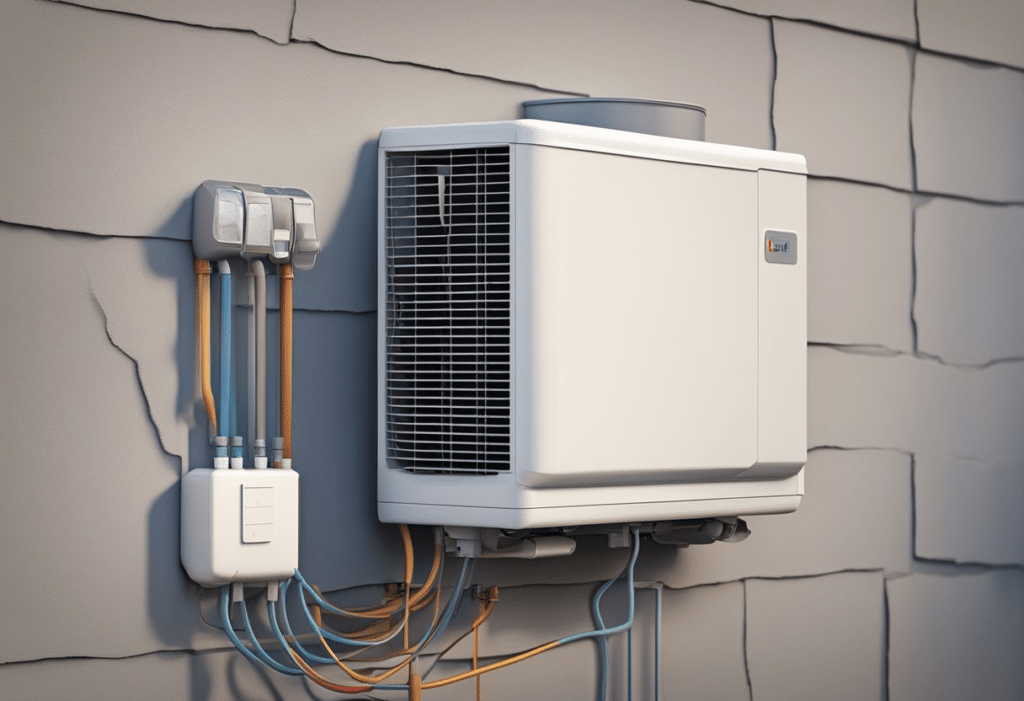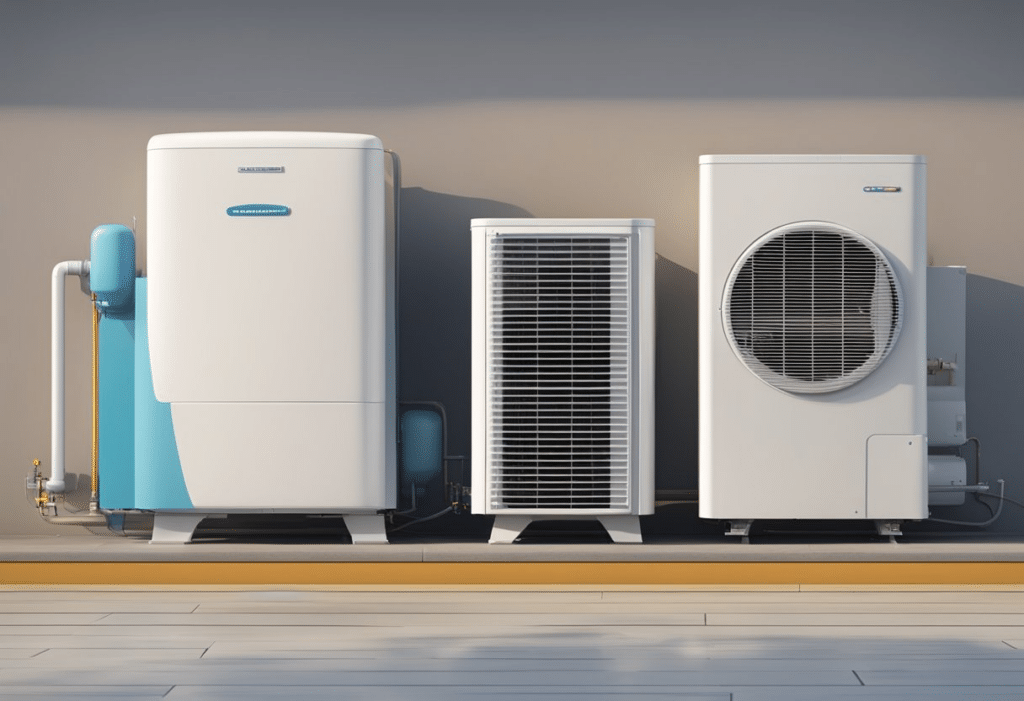Is Air Conditioner Gas or Electric? Understanding Your AC Power Source
When you switch on your air conditioner on a hot day, you might not think about how it operates, but knowing whether it runs on gas or electricity can be crucial for understanding its efficiency and operating costs.
Air conditioners are typically electric devices, using electricity to power the compressor, fans, and other components. Modern air conditioning units rely heavily on electricity to function, as they convert the electricity into cool air by using refrigerant to absorb heat from inside your home and release it outdoors.

While the majority of residential air conditioning systems are electric, there are some models known as gas-fired chillers that utilize natural gas. These are less common and usually found in industrial or commercial settings due to their high-energy capacities. In contrast, for home use, electric air conditioners are more prevalent, with options ranging from portable and window units to central air conditioning systems. These systems not only cool the air but also help dehumidify your home, contributing to a more comfortable living environment.
Your air conditioning system’s efficiency can vary based on its type and model. Generally, newer systems have better energy-saving technologies, such as variable speed fans and compressors that adjust cooling output to the actual need. This minimizes energy use while maintaining a steady temperature in your home. Understanding the power requirements and efficiency of your air conditioner can ultimately help you manage its impact on your utility bills and carbon footprint.
Air Conditioning Basics
Air conditioning systems provide comfort by removing heat from indoor spaces. Understanding their design and power requirements is vital for effective use and energy management.
Understanding Air Conditioning Systems
Air conditioning, often abbreviated as AC, is a system designed to cool the air in a room or building by removing heat and humidity. The cooling process primarily involves a substance called refrigerant that transitions between liquid and gas states within the system, absorbing and releasing heat.
Power Sources for Air Conditioning
The operation of air conditioning units generally relies on two main types of energy sources: electricity and gas. While most common air conditioning systems are powered by electricity, some use natural gas, oil, propane, or even renewable sources. Electric power is typically used to operate the compressor, fans, and other components, whereas gas might be used in absorption coolers or to fuel pilot lights in gas-powered heat pumps.
Components of Air Conditioning Units
Central air conditioning systems are typically composed of several key components:
- Compressor: Compresses the refrigerant and circulates it through the system.
- Condenser Coil: Usually located in the outdoor condenser unit, it releases absorbed heat into the outside air.
- Expansion Valve: Regulates refrigerant flow into the evaporator coil.
- Evaporator Coil: Positioned in the air handling unit, the coil absorbs heat from indoor air.
- Fan: Works to blow indoor air over the evaporator coil and circulate cooled air back into the room.
The efficiency of these components is directly affected by their energy source. Thermostats are used to control the temperature and the overall operation of the system. Energy efficiency is particularly important in air conditioning units because cooling systems consume significant amounts of electric power or gas, depending on their design.
Comparing Electric and Gas Air Conditioners

This section examines the fundamental differences between electric and gas air conditioners, including their operations and implications for cost, efficiency, and environmental impact.
The Distinctions of Electric Air Conditioners
Electric air conditioners operate by using electric power to move heat from the interior of a building to the outside. Central air conditioning, mini-split systems, and heat pumps are common electric HVAC systems that offer cooling and sometimes heating. They are widely used due to their ease of installation where electric power is available. Electric air conditioning systems tend to have lower upfront costs and are known for energy-efficient operation.
Energy Consumption: Electric air conditioners consume energy measured in kilowatt-hours (kWh). The efficiency of these units is often rated by their Seasonal Energy Efficiency Ratio (SEER).
Installation: Typically easier and less costly than gas-powered systems, as no gas lines are required.
The Aspects of Gas Air Conditioners
Gas air conditioners, also known as gas-powered or gas HVAC systems, use natural gas or propane as their primary fuel source. These systems are advantageous in areas where gas is less expensive than electricity. They provide efficient heating and are often included in dual-fuel systems paired with an electric heat pump.
Energy Consumption: Gas air conditioners consume natural gas measured in cubic feet or propane in gallons. Costs are often dependent on the fluctuating prices of fuel.
Installation: Requires gas connections; thus, installation is more complex and should be executed by a certified HVAC technician to minimize the risk of gas leaks.
Factors Affecting Choice and Performance
The decision between electric and gas air conditioning systems often hinges on several factors:
- Cost: Compare both the operating costs and upfront installation expenses.
- Utility Bills: Your local utility rates for electricity and gas can dictate the most cost-effective option.
- Climate: Colder regions might benefit from the heat generated by gas systems.
- Energy Consumption: An assessment of your energy efficiency goals and the corresponding energy consumption rates of each system type.
Environmental Considerations and Efficiency
There is a growing trend to assess the environmental impact of HVAC systems. Electric air conditioners can be more energy efficient and are considered more environmentally friendly when coupled with renewable energy sources.
- Electric Power: Often generated from a mix of sources; may include renewable sources such as wind or solar, which reduces environmental impact.
- Natural Gas: Though more efficient in heating, it contributes to air pollution when burned.
Safety, Installation, and Maintenance
Safety and ease of maintenance are important considerations for any air conditioning system.
- Electric Air Conditioners: Have improved safety due to the absence of combustible fuels. Regular maintenance involves cleaning filters and ensuring proper airflow.
- Gas Air Conditioners: Require strict adherence to safety considerations to prevent gas leaks. Maintenance might involve more rigorous inspections of the gas lines and connections.
Innovations in Air Conditioning Technology
Technological advancements are shaping the future of air conditioning. Smart thermostats and programmable thermostats have emerged to enhance the operation of both electric and gas systems.
- Heat Pumps: Advanced models offer greater energy efficiency and can reduce utility bills.
- HVAC Systems: Newer HVAC technologies that combine heating and cooling are becoming more prevalent, optimizing your home’s energy consumption.
Choosing between electric and gas air conditioners depends on individual needs, but understanding the specific characteristics of each can guide you to a more informed decision.
Frequently Asked Questions About Electric and Gas Air Conditioners
The following questions address common concerns and comparisons between gas and electric air conditioning units, aiming to clarify points regarding their operation, costs, and types available.
How can I determine the power source of my air conditioning unit?
Check your air conditioner’s manual or look for a specification plate on the unit which typically lists the power source. If it’s an electric unit, it will specify the voltage and amperage requirements. For a gas-powered unit, it will often mention natural gas or propane.
What are the cost differences between gas and electric air conditioners?
Electric air conditioners usually cost less upfront compared to gas air conditioners. However, the operational costs can vary depending on local electricity and gas prices. Electric units are generally more expensive to operate in areas where electricity costs are high.
Are there any air conditioning systems that operate on natural gas?
Yes, some air conditioning systems operate on natural gas. These are absorption chillers and are often used in larger commercial or industrial spaces. They can also be utilized in residential settings where natural gas is more economical than electricity.
What impact does air conditioning have on my electricity bill?
Air conditioning is typically one of the largest contributors to your electricity bill during warm months. The exact impact depends on the unit’s efficiency, the size of the space cooled, the temperature setting, and the local cost of electricity.
Do vehicle air conditioners consume gasoline?
Yes, vehicle air conditioners consume gasoline. They are powered by the engine, which uses fuel to run. Using your car’s air conditioner can decrease fuel efficiency because it requires additional power from the engine.
What are the advantages and disadvantages of natural gas air conditioners?
Natural gas air conditioners are usually more energy-efficient and have lower operational costs where gas is cheaper than electricity. They are also considered better for heating. The disadvantages include a higher installation cost and potentially limited availability in certain regions.
You can read our other guides if you’re also having trouble with your air conditioner leaking or turning off by itself.
